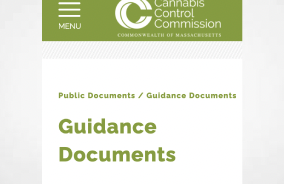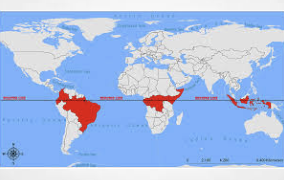They write
WORCESTER—Today the Cannabis Control Commission (Commission) published the final versions of its Model Host Community Agreement (HCA) and updated guidance documents relative to licensure and HCAs following Commissioners’ vote to approve them at the agency’s February 29 public meeting. These tools were designed to demonstrate what a compliant contract could look like and support a fair process between municipalities and license applicants/licensees as the agency embarks on reviewing, approving, and certifying HCAs for the first time in the legal industry’s history.
Promulgated as part of the Commission’s most recent regulatory revisions in accordance with the Commonwealth’s cannabis equity reform law, the Model HCA and updated guidance documents will be an essential part of the Commission’s engagement with cities, towns, and licensed entities across Massachusetts as the agency begins fulfilling its new statutory mandates. In addition to the publication of these materials to assist all stakeholders with understanding the new regulations, the agency has also published a new HCA waiver form and updated relevant license and renewal applications available through its online Massachusetts Cannabis Industry Portal, thereby enabling license applicants and licensees to submit HCA or HCA waivers to the Commission to ensure their compliance.
The Agency’s Host Community Agreement Review and Enforcement Began March 1
WORCESTER—Today the Cannabis Control Commission (Commission) published the final versions of its Model Host Community Agreement (HCA) and updated guidance documents relative to licensure and HCAs following Commissioners’ vote to approve them at the agency’s February 29 public meeting. These tools were designed to demonstrate what a compliant contract could look like and support a fair process between municipalities and license applicants/licensees as the agency embarks on reviewing, approving, and certifying HCAs for the first time in the legal industry’s history.
Promulgated as part of the Commission’s most recent regulatory revisions in accordance with the Commonwealth’s cannabis equity reform law, the Model HCA and updated guidance documents will be an essential part of the Commission’s engagement with cities, towns, and licensed entities across Massachusetts as the agency begins fulfilling its new statutory mandates. In addition to the publication of these materials to assist all stakeholders with understanding the new regulations, the agency has also published a new HCA waiver form and updated relevant license and renewal applications available through its online Massachusetts Cannabis Industry Portal, thereby enabling license applicants and licensees to submit HCA or HCA waivers to the Commission to ensure their compliance.
“The Commission’s Model HCA is a critical resource that stakeholders can use to follow state law and regulations relative to these fundamental agreements that permit operators to set up shop in a community,” said Acting Chair Ava Callender Concepcion. “After offering constituents the chance to review and comment on the initial draft, we hope the final document will truly level the playing field for all industry participants and municipalities seeking to engage in Massachusetts’ regulated cannabis industry going forward.”
“When it comes to HCAs, the days of the wild west within Massachusetts’ regulated industry are over,” said Commissioner Kimberly Roy. “With passage of the state’s cannabis equity reform law and publication of new Commission regulations, guidance, and the model HCA, municipalities and licensed entities now have a clear understanding of what is expected of all parties involved.”
In accordance with Chapter 180 of the Acts of 2022, An Act Relative to Equity in the Cannabis Industry, the Commission voted 3-1 in October 2023 to approve final changes to Massachusetts’ adult and medical use of marijuana regulations, including policies that will implement the agency’s oversight of HCAs, Municipal Equity, and other important policies. As a result, the agency has new authority to review, approve, and certify HCAs, and develop this model contract. As of March 1, the Commission is now enforcing adherence to an HCA that complies with state law and updated regulations, unless the license applicant/licensee and Host Community agree to a compliant waiver.
In addition to the updated guidance documents, the Commission has offered the Model HCA for use by stakeholders in the following ways:
- As a new, “fill in the blank” agreement between the contracting parties;
- A template that can be used and modified based on the parties’ agreement; or
- As an interim agreement for licensees and municipalities to quickly establish a compliant HCA if they think their current HCA may not be compliant.
As stated in the Commission’s regulations, HCAs that conform to the Model HCA are presumed compliant. However, while this template is meant to offer a contractual tool for constituents, it is not required to be used to comply with new HCA rules, and should not be taken as the agency’s legal advice. Any municipality or license applicant/licensee is encouraged to consult an attorney on the legal requirements for HCAs.
Under the new law and regulations, the Commission may deem an HCA provision voidable or invalid, and therefore unenforceable, and issue sanctions against a Host Community that is noncompliant with HCA requirements. It also may abstain from considering new license applications in a noncompliant Host Community.
To be considered compliant, all conditions set in an HCA must accord with Commission regulations and be reasonable. Conditions that are presumed reasonable include those that are:
- Required under local rules, regulations, ordinances, or by-laws;
- Deemed necessary to ensure public safety and proposed by the Host Community’s chief law enforcement authority and/or fire protection chief, and include a detailed explanation of such necessity;
- Deemed necessary to ensure public health and proposed by the Host Community’s chief public health authority, and include a detailed explanation of such necessity;
- A local requirement customarily imposed by the Host Community on other, non-cannabis businesses operating in the municipality;
- Not in conflict with other laws; or
- Otherwise deemed reasonable by the Commission.
Other changes to the HCA process include the following:
- New provisions specifying the stipulations between the HCA and the license applicant/licensee and a set timeline for Host Communities to transmit an invoice of claimed impact fees to the license applicant/licensee;
- The Host Community shall not attempt to collect impact fees relating to any operations occurring prior to the date a licensee is granted a final license by the Commission;
- The Host Community shall not attempt to collect impact fees from any licensee that held a final license for more than nine years;
- Permission for the Host Community and license applicant/licensee to retain a private mediator provided that neither party may compel the other to participate in a private mediation;
- Prohibitions on certain HCA provisions, terms, conditions, or clauses, including:
- A promise to make a future monetary payment, in-kind contribution, or charitable contribution, whether explicit or implicit;
- Requiring a license applicant or licensee to make upfront payments as a condition for operating in the Host Community;
- Obligating a licensee to set aside money in an escrow, bond, or other similar account for a Host Community’s use or purpose;
- Imposing legal, overtime, or administrative costs or any costs other than a Community Impact Fee on a licensee with the exception of tax obligations and routine, generally occurring fees;
- Inducements to negotiate or execute an HCA;
- Requiring that the Community Impact Fee be a certain percentage of the licensee’s total or gross sales as a term or condition of an HCA, or demanding the fee exceed three percent of the licensee’s gross sales;
- Discouraging any party from bringing a civil cause of action or other legal challenge relative to an HCA or to an individual term or provision of an HCA; and
- Waiving a licensee’s ability to dispute whether the impact fees alleged by a Host Community are reasonably related to the costs imposed on their operations;
- A set timeline (a maximum of 90 days) and process for the Commission to complete its review of an HCA upon receiving it from a license applicant and/or licensee—which may be extended 90 days upon receiving an amended HCA;
- The ability of licensees to access equitable relief if a municipality decides to no longer continue as the licensee’s Host Community. The Commission may allow the impacted licensee additional time to receive the approval of the Host Community for a compliant HCA or make a change of location, waive fees, institute procedures to wind down licensee operations, or determine other equitable relief; and
- Allowing interested parties to file complaints alleging noncompliance with HCA requirements with the Commission and allowing licensees or license applicants to bring private breach of contract causes of action in a court of competent jurisdiction.
Additional information is available by visiting MassCannabisControl.com, by contacting the Commission by phone (774-415-0200) or email ([email protected]), or following the agency on Facebook and X.


















